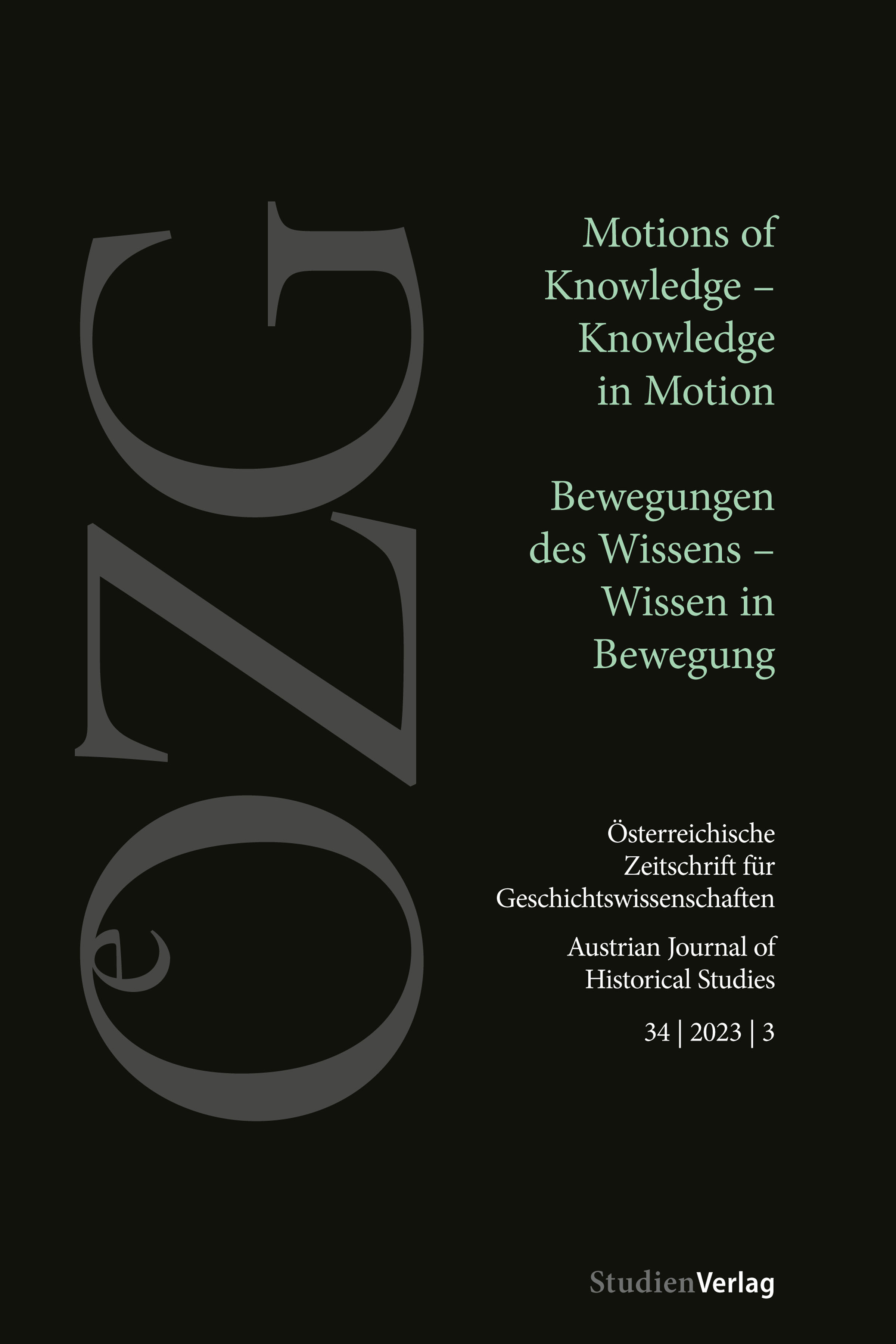Applying “Knowledge Circulation” in Historical Research
DOI:
https://doi.org/10.25365/oezg-2023-34-3-1Keywords:
knowledge in motion, knowledge circulationAbstract
The history of knowledge pays increasing attention to questions of “how, when, and, if necessary, why a certain knowledge emerges – and disappears again”, and further to what effects it has, in which contexts it functions, and who its stakeholders are. Over the past decade, it has developed into a dynamic field, producing fruitful concepts that now need to be empirically reassessed. One of the key concepts within the field is the much discussed “knowledge circulation”. It implies that knowledge is not simply spread linearly from A to B, remaining unchanged. Rather, it suggests a multidirectional process in which knowledge is produced, mobilised, and always transformed. Understanding knowledge as the product of a circulation process allows for an analytical shift towards the process of knowledge production itself.
Downloads
Published
How to Cite
Issue
Section
License
Copyright (c) 2023 Austrian Journal of Historical Studies

This work is licensed under a Creative Commons Attribution 4.0 International License.


